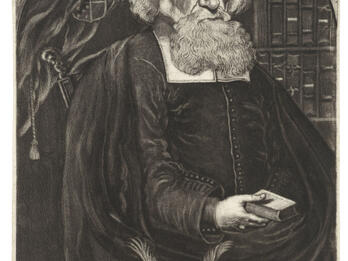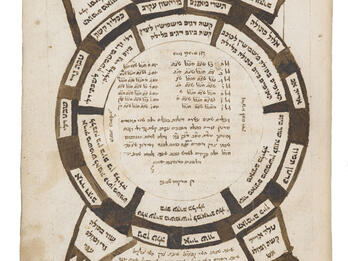Nishmat ḥayim (Breath of Life)
Behold, we have before us the head of the rationalists [or “rational theologians”], Maimonides, may his memory be for a blessing. In chapter three of Hilkhot teshuvah [Mishneh Torah, Laws of Repentance], he said:
These are the ones that do not have a portion in the world-to-come, but are cut off and lost, and are judged according to the greatness of their evil and their sin, for eternity and forever: the heretics; those who deny the Torah, etc.
Naḥmanides, may his memory be for a blessing, changed these things drastically in his Sha‘ar ha-gemul. In regard to one of them, he said:
Moreover, there is another aspect regarding one who is liable to excision, as his body will be cut off from this world, and his soul will be cut off even from life in the world-to-come. It is not necessary to say that he will be cut off from life in the supernal Garden of Eden, for he is sentenced to Gehenna for eternity. This applies to those who are idolaters and heretics, such as those whom the sages enumerated in the Mishnah: “These are the people who do not have a portion in the world-to-come,” etc.1 In the end, he summarized his opinion as follows: “From this, anyone who is intelligent can understand that there is no disagreement between our rabbis concerning the core principle of all of these basic concepts of future judgments, and all of their words represent similar ideas.”2
It is likewise stated in the portion of Aḥarei mot: There is a cutting off that is more severe than this, in which one’s body and soul are cut off (Leviticus 18:29). This is the meaning of the verse: Because he hath despised the word of the Lord, and hath broken His commandment; that soul shall utterly be cut off, his iniquity shall be upon him (Numbers 15:31). This has been interpreted as meaning that one who is cut off from this world will be cut off from the world-to-come, according to the saying that he will perish in youth and his life will be as that of the depraved,3 that is, his soul will not have life at the final resurrection, and he will not have a portion in the world-to-come. Now, even though he did not mention life in the supernal Garden of Eden, he did not have a need to say anything about it, as he wrote in his Torat ha-adam, as I have mentioned before. Indeed, Naḥmanides, may his memory be for a blessing, was a great kabbalist and a pious man, unlike any that we have heard about in our own day. But he walked in the footsteps of the Mishnah and the Talmud, for anything other than them, which might be contrary to their teachings, is simply the thoughts of man and his own trickery.
Translated by
.
Notes
[The Writings of the Ramban, ed. Chavel, vol. 2 (2010), p. 290; m. Sanhedrin 10:1—Trans.]
[Ibid., p. 294—Trans.]
[b. Sanhedrin 64b, 90b; see Job 36:14—Trans.]
Credits
Saul Levi Mortera, “Nishmat ḥayim (Breath of Life)” (letter, Amsterdam, ca. 1636). Published in: Alexander Altmann, “Eternality of Punishment: A Theological Controversy within the Amsterdam Rabbinate in the Thirties of the Seventeenth Century,” Proceedings of the American Academy for Jewish Research, vol. 40 (1972): pp. 1–88 (41–51).
Published in: The Posen Library of Jewish Culture and Civilization, vol. 5.




